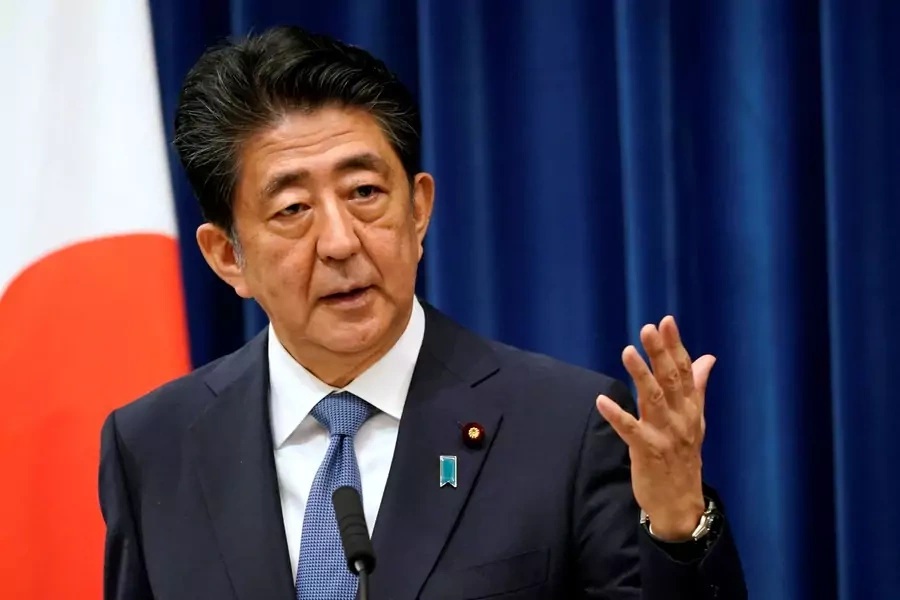Japan's Shocking Loss

Former Prime Minister Abe Shinzo was assassinated on July 8 as he gave a stump speech for this Sunday’s Upper House election in the western city of Nara. The shocking act not only marked the death of a towering national figure but triggered new concerns about the state of Japan's democracy.
Abe served more than eight years as Japan’s prime minister, first from 2006-7 and again from 2012-2020. Without a doubt, he was the most influential postwar leader, leading Japan through a time of immense global and regional geopolitical change. Foreign leaders across the globe have condemned the violence and reflected on Abe’s immense impact on global affairs.
More on:
As head of government, Abe introduced a new economic strategy, dubbed Abenomics, to jump start Japan's economic growth after decades of malaise. His more than eight years in office were also defined by Japan's growing activism in international politics, as Abe responded to the rapidly changing geopolitics of Asia. China's rise prompted Abe to define a new Indo-Pacific vision that brought the leading powers of Asia, including Japan, the United States, Australia, and India together to ensure a rules-based order.
Abe worked closely with two U.S. presidents, Barack Obama and Donald J. Trump, navigating the divisions in U.S. politics adroitly to ensure a strong U.S.-Japan alliance. With Obama, Abe joined the Trans Pacific Partnership, the innovative trade agreement that brought advanced Pacific economies together to liberalize trade, although Trump would subsequently remove the United States from the pact. Abe and Obama also agreed to finally take steps to heal the deep wounds of the Pacific War with Obama visiting Hiroshima and Abe visiting Pearl Harbor in late 2016. The year before, the U.S. Congress had invited Abe to be the first postwar Japanese prime minister to address a joint session of Congress.
Perhaps more remarkable was Abe’s ability to navigate the transition to the Trump Administration. As perhaps the only U.S. allied leader able to work closely with Trump, Abe made it his priority to advise the president on Asian geopolitics as North Korea tested the U.S. administration in 2017 and as China grew increasingly emboldened to assert its maritime interests across the Indo-Pacific.
Abe was unapologetic in his efforts to project a strong national identity for Japan, and at times, ruffled feathers with his efforts to strengthen Japan's defenses and argue for a revision of its postwar Constitution. Yet his pragmatic instincts dominated, and Abe will go down in history for his unstinting effort to ensure Japan was prepared for the rapidly changing geopolitics that challenged its postwar success.
Since stepping down from office, Abe continued to play an outsized role in Japan’s strategic debate. In the wake of Russia’s invasion of Ukraine, he pushed for a greater debate in Japan over how to achieve nuclear deterrence, calling for consideration of a NATO-like “nuclear sharing” arrangement that would allow U.S. nuclear forces to be deployed on Japanese soil.
More on:
But he was equally poised to define the future direction of Japan’s politics. This year, Abe took over leadership of the largest faction within the Liberal Democratic Party, ensuring that he would have a powerful influence over the selection of future leaders.
The assassination was especially shocking given the rarity of shooting attacks and the nation's very strict gun control laws. The shooter was arrested at the scene in possession of what seemed to be a handmade gun. Japan’s gun laws are some of the strictest in the world, and access to firearms severely restricted. In 2021, for example, Japanese police recorded 10 shootings, with 8 of them being related to the yakuza, or organized crime groups. Early reports on Abe’s killer, a 41-year-old, identified him as a former member of the Maritime Self Defense Force who held some sort of grudge against the former prime minister.
Across the nation, candidates from all political parties ended their campaign activities out of respect for Abe. Sunday’s Upper House election will now have a far different atmosphere. The assassination of such a prominent political leader has shaken the Japanese people and raised questions about whether political violence, long seen as unthinkable, may now return to one of the world’s most stable democracies. Right-wing extremists, however, have targeted other politicians over the years, including attacks against prominent LDP Diet members. Abe’s killer is in police custody and the unemployed man reportedly confessed to a deep, personal grudge against Abe. Undoubtedly, Japan’s police and security services will be reviewing this catastrophic failure in order to protect their politicians from the citizens they wish to represent.
 Online Store
Online Store